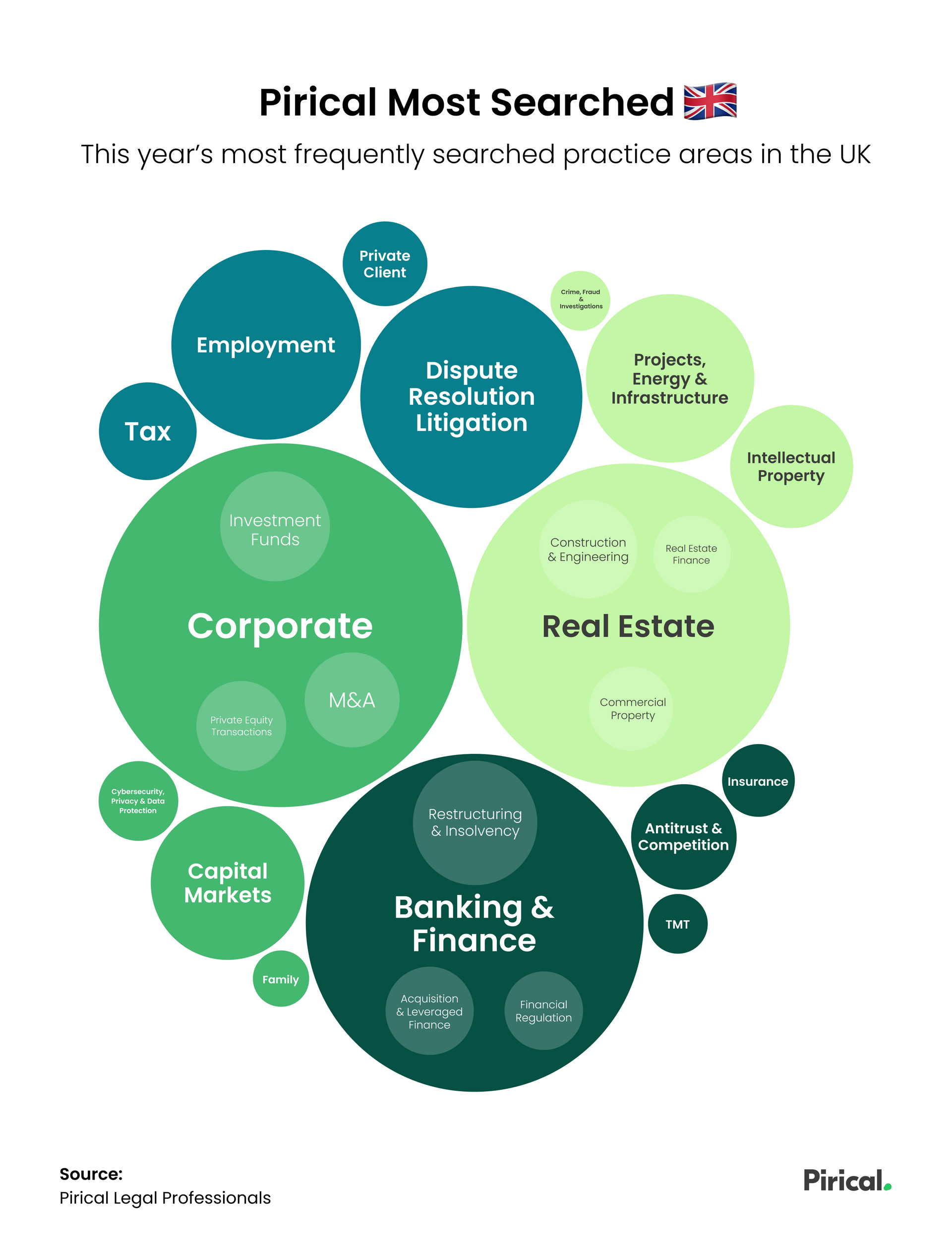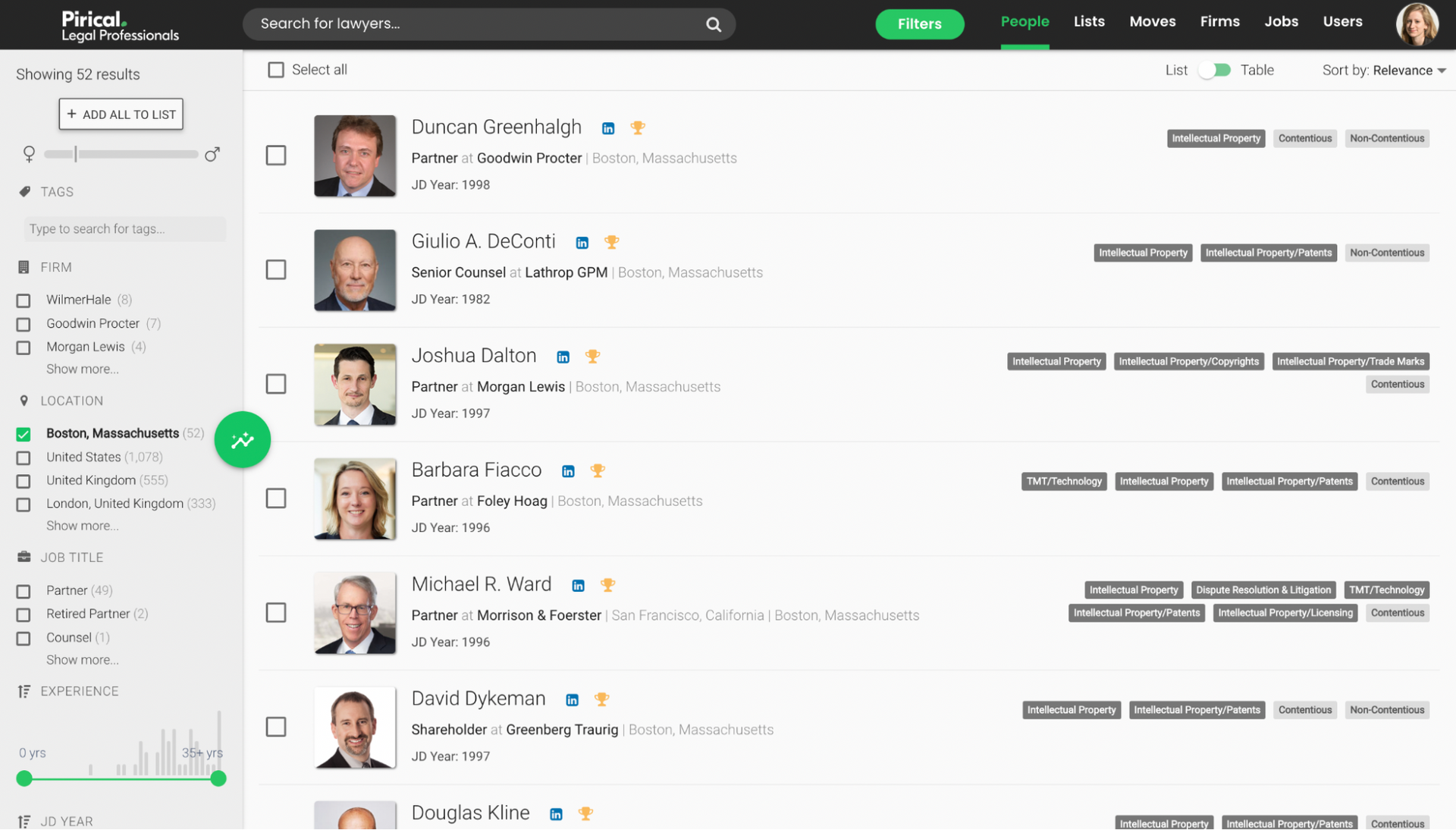Corporate law firms are demanding diversity but not diverse candidates
We had the opportunity to speak to Somaya Ouazzani, CEO & founder of Mimoza Fleur legal search agency. We discussed with Somaya the current issues around diversity and inclusion in the legal sector today and the importance of “responsible recruitment” by firms and agencies towards creating equal opportunities.
Firms need to work with recruitment agencies that have diversity on their agenda
Somaya recognises that awareness of diversity has increased and become more of a “talking point within the law sector”. She notes that the prominence of the Black Lives Matter movement in 2020 led to a greater and heightened awareness of the need to address representation and diversity within the legal profession.
The top 20 or so UK law firms have led this conversation and responded to added pressure from their own clients.
Yet, from Somaya’s perspective as a supplier, this increase in engagement has not led to an explicit rise in client demand
for a more diverse range of candidates. She does not have clients asking her to - for example - compile shortlists that keep in mind the inadequate female representation in certain sectors and she does not feel that enough firms are prioritising affirmative action when considering the candidates she puts forward. Engagement has however prompted her clients to ask more direct questions like, “what have you been seeing in the market on the best practices for diverse recruitment? What’s the demand for flexible working?”

Somaya notes it is possible Mimoza Fleur clients implicitly trust the agency to deliver a diverse range of applicants. After all, Mimoza Fleur has built a reputation around the recruitment and development of diverse senior talent.
“Inclusivity and diversity are at the heart of how we recruit. If I’m completely candid, when we do our market mapping, we’re conscious of the variety of people we’re putting forward and always make sure our search results give sufficient attention to gender, ethnicity, social mobility, and we always consider the benefits and possibility of promoting senior-juniors into partner positions.”
Law firms are switching to direct sourcing to take control of their talent acquisition
Somaya has also noticed a shift within the sector with law firms turning away from outsourcing all roles to agencies and increasingly towards operating their own in-house teams for some (usually junior / support level) recruitment. There are several possible reasons for this shift, including the availability of technologies to reduce the time and cost of researching potential candidates for a role, but this could also suggest a concern over talent acquisition and talent process within the sector. She recognises that firms are developing a “stricter idea of what agencies they will work with” and focusing on those who can support their inclusivity and diversity objectives. Somaya believes, “you need firms that are focused on the bigger picture”, and will make addressing those issues a priority, rather than a box ticking exercise.
Somaya has first-hand experience in the range of diversity issues relevant to the legal profession. She is aware of the chances for women and ethnically diverse candidates being invited to interview, and the likelihood of them making it into senior positions.
“When people are thinking about diversity in lateral partner level recruitment, in some sectors, for example, disputes and international arbitration or sport law, women B and C lists rather than the A lists..”
Declaring diversity statistics is not enough to dissuade candidates or make change happen
Somaya recognises the pressure from the younger generation of lawyers for firms to adopt a D&I strategy, and the competitive advantages it can bring firms especially in the recruitment process. However, she notes that whilst “change is on the agenda from younger generations, choice is a luxury.” When poaching young talent, candidates are most likely to opt for a firm that shows itself to have a diverse and inclusive culture, which Somaya describes “as best demonstrated by a diverse partnership”. This competition over talent creates a positive pressure for firms to adopt a strong D&I strategy.
However, Somaya believes that having a choice of firms is “a rare privilege for female and BAME candidates”. Based on her experience of tracking candidates over time, “ the ratio of female and BAME applicants to successful offers is low.” In addition, young lawyers who enter the legal sector from non-target universities, are less likely to have multiple job offers.
Somaya recognises the pressure on large corporate firms when pitching for work to be part of a panel - law firm’s approach to diversity and inclusion is now part of the pitching process for a lot of the very big – panel led - work. And, as a lot more dynamic and radical young lawyers come through, it is her opinion that they are people “who are more prepared, bold and willing to make changes.”
Somaya’s view is that the legal profession has “got to move away from just wanting to focus on Oxbridge for graduate recruitment”. Often the legal sector focuses on the binary of ‘did this person attend Oxbridge or not’? Yet there are many other signals firms can use to recruit, beyond simple information on demographics or professional experiences. For example, there is some evidence that - in some firms - having experience in retail or another service sector role makes a better performing lawyer. Nevertheless, entrenched biases continue to prevent a diverse range of candidates being considered by the most desirable firms.
“Pirical has been fantastic at publishing data on this and bringing it to the spotlight: sources of where you recruit from in terms of social demographics.”
Candidates faced with fewer options would go “anywhere that is good and has a decent salary.” Somaya identifies an issue around interview biases as adding to a “lack of authenticity of self” in the workplace. If candidates are made to feel they are less desirable from inception, it is more than likely these lawyers will follow their career with, what Somaya describes, as an attached “gratitude tax”. For some firms, the issue around authenticity in the workplace (or lack thereof) may explain low retention and attrition rates of ethnically diverse and female lawyers within the ‘big law’ firms.
“If people can’t be themselves, we’re not going to keep them for very long.”
The role of “responsible recruitment” in tracking a candidate’s career
“I don’t think the ethnicity agenda (and by implication the focus on social mobility) has seen the same momentum, traction or footprint as gender diversity. Lengths still need to be made with the transformation of recruitment, leadership and representation at senior levels”
It is Somaya’s opinion that “responsible recruitment” is a key leveler in opportunities for diverse talent in the legal profession. Her approach as a search agent specialising in team and partner moves focuses on delivering diverse talent at early stages of the recruitment process, and further supporting candidates throughout their careers. Mimoza Fleur offers coaching and events, which focus on a range of issues from authenticity in the workplace and its effects on retention and attrition, to representation of ethnically diverse and female lawyers in senior levels. Examples of events Somaya has been involved in includes Authenticity in the City, hosted with Macfarlanes, How Did She Do It? Hosted with Arnold & Porter and Authentically Speaking hosted with the Women Lawyers & Mothers association (WLAM) and Hannah Beko, a coach and real estate partner.
“Those events are testament to a recruitment firm taking these diversity issues seriously and bringing to the spotlight these long standing recruitment issues.”
Somaya believes this type of activity is an intrinsic part of the role of “responsible recruitment” and by tracking a candidate's career recruiters can identify “most important and effective ways of getting more ethnically diverse, female lawyers into partner positions.”
Pirical On Demand (POD) is the UK’s first on demand people analytics service for HR in legal and professional services. Track your firm’s diversity and inclusion strategy with real-time data and thousands of pre-populated data questions.
Subscribe to the latest data insights & blog updates
Fresh, original content for Law Firms and Legal Recruiters interested in data, diversity & inclusion, legal market insights, recruitment, and legal practice management.
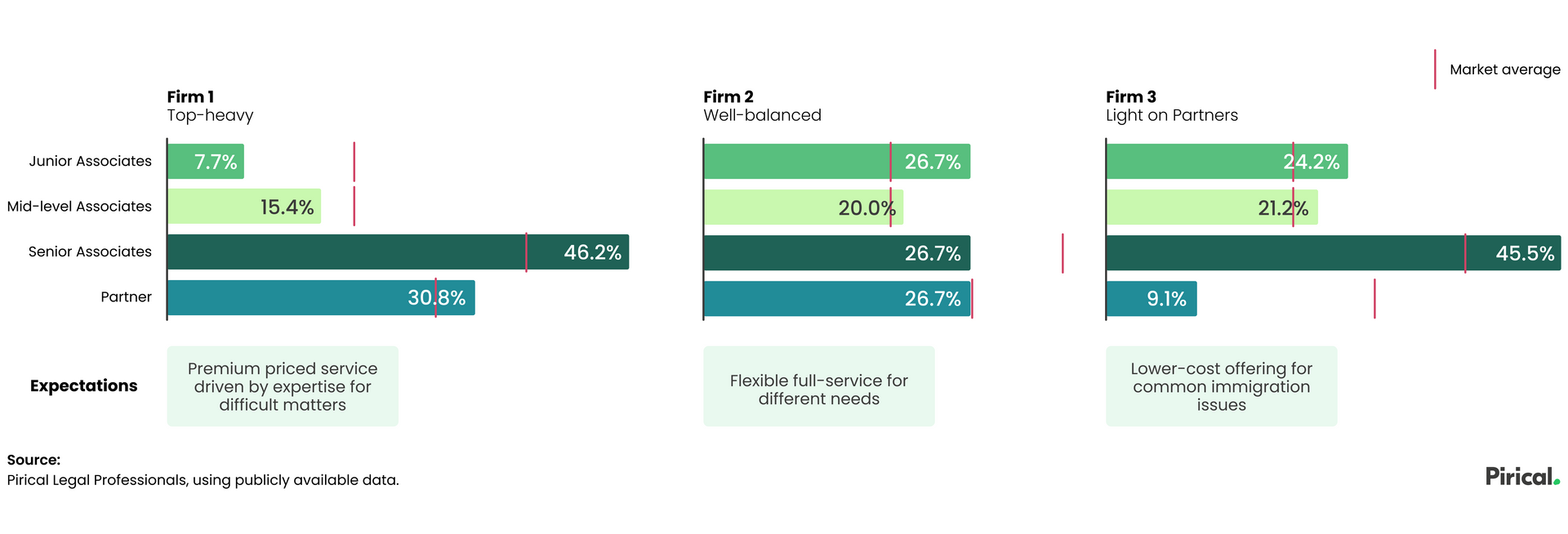
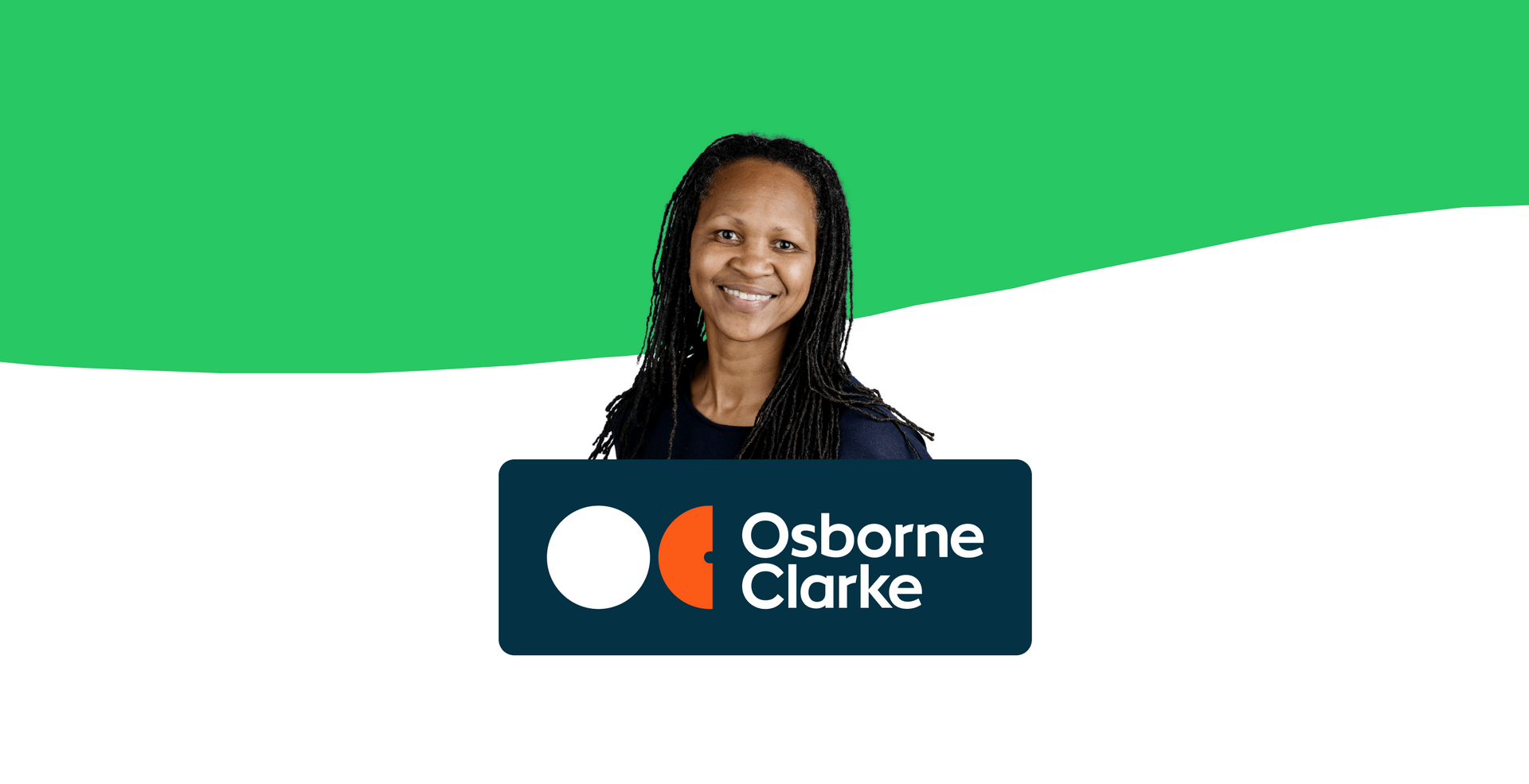
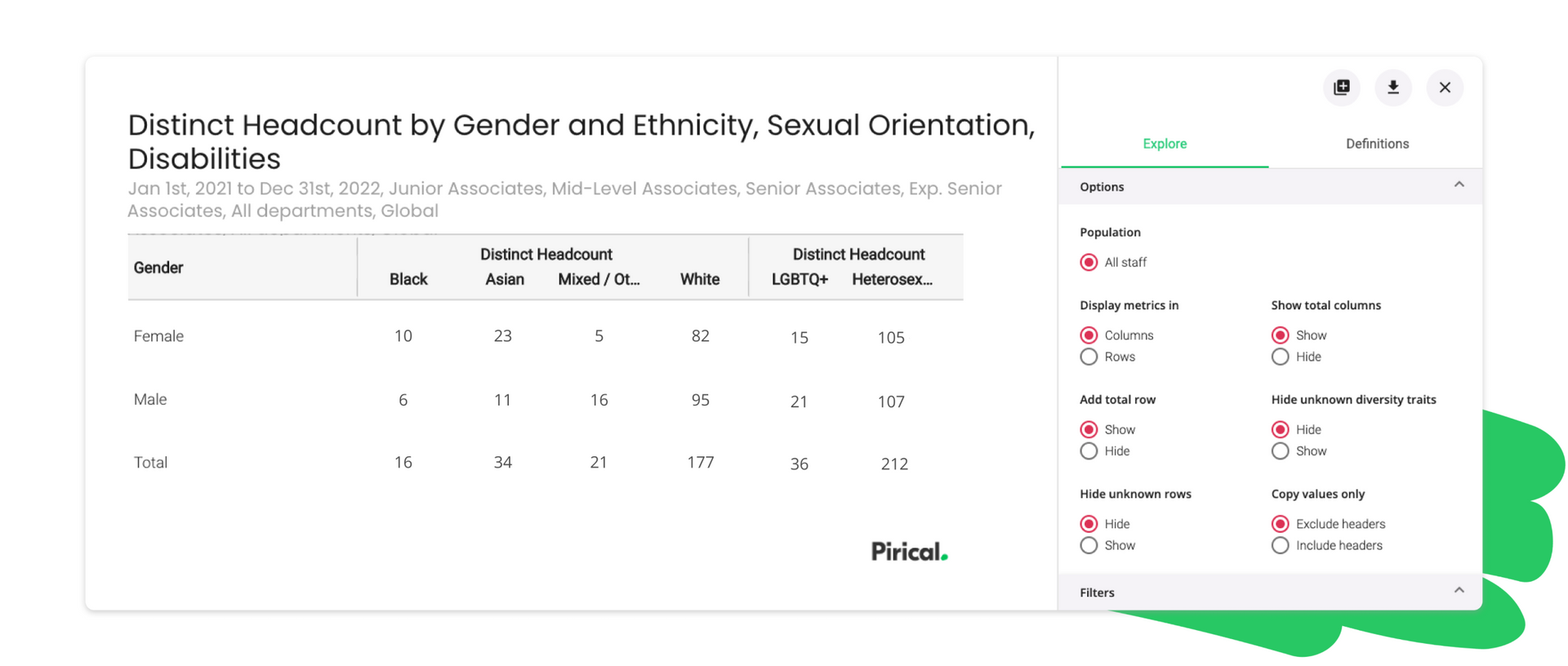
Products
Pirical
81 Paul Street
EC2A 4NQ
info@pirical.com
Copyright Pirical
2024
Certified by
Cyber Essentials Plus

